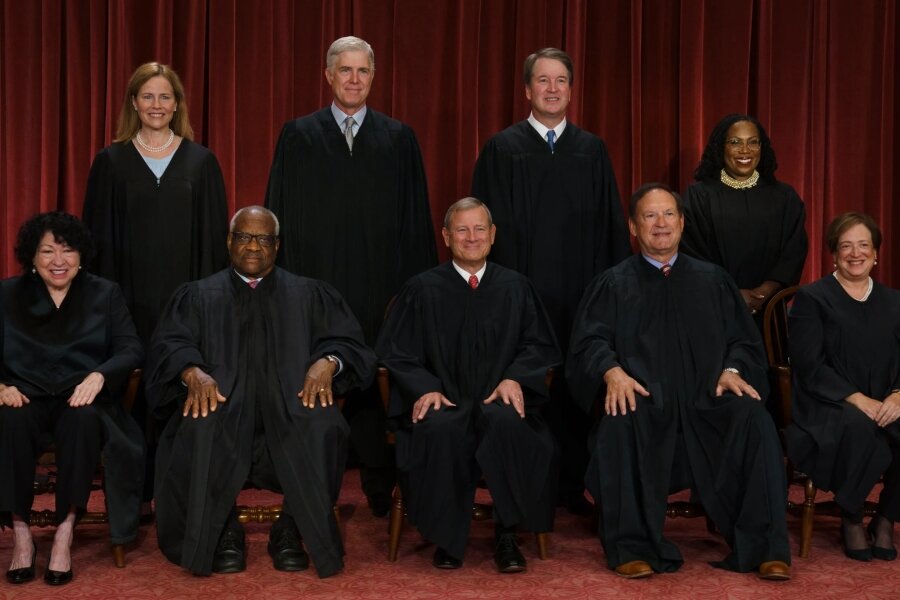The Supreme Court has set Nov. 5 as the date for oral arguments in two consolidated legal challenges to President Donald Trump’s reciprocal tariffs, a ruling that could shape the limits of presidential powers on matters of trade.
The high court had already agreed earlier this month to take up the issue, and the Sept. 17 order fixed the timetable for what could be one of the most consequential trade cases in decades.
The eventual ruling could have sweeping economic consequences, reshaping U.S. trade flows and federal revenue. The United States reported a record $31 billion in monthly tariff revenue in August, under trade policies implemented by Trump. Besides generating revenue, the tariffs have given the administration leverage to extract economic concessions from trading partners.
The cases—Learning Resources Inc. v. Trump and Trump v. V.O.S. Selections Inc.—center on whether Trump exceeded his authority under the International Emergency Economic Powers Act (IEEPA), a 1977 law meant for national security crises. The justices ordered that the two disputes be heard together.
Lower courts struck down most of the duties, holding that the IEEPA does not give the president unilateral power to impose or adjust tariffs outside of emergencies. Judges ruled that tariff authority remains with Congress unless clearly delegated.
Learning Resources, an Illinois-based educational toy maker, has argued that Trump’s tariffs threaten its survival. On May 29, a federal district court agreed, granting a preliminary injunction that called the duties an “existential threat” to the business. The ruling was stayed in June to allow the government to appeal.
V.O.S. Selections, a New York importer of alcoholic beverages, challenged the tariffs at the U.S. Court of Appeals for the Federal Circuit. A divided panel sided with the company, saying Trump exceeded his authority when invoking the IEEPA. The court stated that the statute “bestows significant authority on the President” in response to emergencies but does not include “the power to impose tariffs, duties, or the like, or the power to tax.”
The court added that Congress did not include procedural safeguards in the IEEPA that would normally limit executive trade powers, making it unlikely that lawmakers intended to grant open-ended authority over tariffs to the executive branch.
Trump has defended the tariffs as a pillar of his economic agenda, crediting them with reshoring manufacturing and forcing foreign governments to renegotiate trade practices.
“Without the tariffs, this country is in serious, serious trouble,” he told reporters on Sept. 2. “We’ve taken in almost $17 trillion of investment … most of it is coming because of tariffs.”
Treasury Secretary Scott Bessent said on Sept. 7 that if the Supreme Court rules against the administration, the government could be forced to issue refunds on roughly half the tariffs collected so far—an outcome he called “terrible for the Treasury.” Tariff revenue has become an important inflow at a time of large federal deficits, he said.
Even so, Bessent said the administration has “other avenues” to impose duties if needed, although he declined to specify what they are. He expressed confidence that the Supreme Court would ultimately uphold Trump’s policy.
Share your thoughts by scrolling down to leave a comment.













